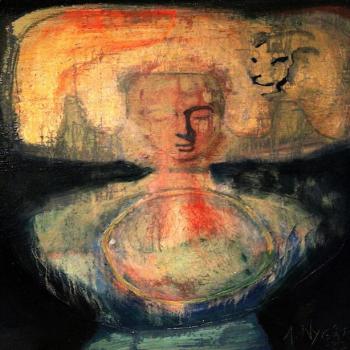
Do you remember the book The Shack? It was the story of a man’s journey from personal tragedy to spiritual rebirth, with a key component being his conversations with God, who appeared to him as a black woman. It sold more than 10 million copies after its release in 2007 and was later made into a movie—but it was not without its detractors.
While the book was based loosely on Biblical scripture and was a huge hit with the Christian market, it also had fierce critics. This included many evangelical leaders who said, “it misrepresents God,” is “undiluted heresy,” and was “deeply troubling.” Its author, William P. Young, was labeled by some “a heretic.”
You might think Young would have backed down after the controversy, but instead he doubled down. In 2017, he published a book titled Lies We Believe About God. Unlike The Shack, it was a non-fiction book. But like The Shack many of its ideas are based on scripture. Only Young is not beholden to the Bible as the final word, bringing his own sense of compassion and humanity to his work.
What follows are five of the “lies” Young mentions in Lies We Believe About God. His words, with very minor edits, appear almost verbatim in standard text. My thoughts follow in italics.
Five Lies We Believe About God
Lie #1. God is in control.
How often have we heard the well-intentioned words “It must be part of God’s plan?” What if there is no “plan” for your life but rather a relationship in which God constantly invites us to co-create, respectfully submitting to the choices you bring to the table? You are in control of your own life. While God, or some higher power, may work through you and guide you in your decisions, you must ultimately take the wheel and navigate your own path in life.
Lie #2. God is a Christian.
If you ask if God is about separation and treats people of different denominations, faiths, and ways of thinking as outsiders until they pray a special prayer to “get in,” you are misguided. Young believes that Jesus is a way to God, but may be only one of the ways. He says that he is regularly asked if he is a Christian. His usual response: “Would you please tell me what you think one is, and I will tell you if I am one of those.”
Lie #3. You need to get saved.
God does not wait for my choice and then “save me.” God has acted decisively and universally for all humankind. Our choice is to grow and participate in that reality or continue to live in the blindness of our own independence. You are already “saved.” God is within us, all of us, waiting to be noticed. It can sometimes be a slow and dawning realization, which may occur over years, that God is with you now and always has been.
Lie #4: God is not involved with coincidences.
There are no chance encounters; detours are usually intended destinations that are simply not on our agenda. In what often appears to be random and exempt from purpose, nothing is apart from the abiding presence and activity of God. Young believes that God speaks in the language of coincidences, and it is how he both nudges and steers us. To pick up on these coincidences, you must be fully present in your life, paying attention to the small signs God gives you, sometimes in your dreams. Weigh each coincidence and ask yourself: is there greater meaning to this event? Is it nudging me to take a specific action?
Lie #5: Sin separates us from God.
Mistakes are an essential part of being human. Nothing can separate us from the love of God. God is with us always. There is no separation. The idea that you and God are one is repeated again and again in the Gospel of Thomas. None of us is perfect, and we learn from our mistakes. The goal is to continue in a positive direction, using less-than-good behavior and errors in judgement, as tools to learn by and grow. When you realize a loving God is with you always, you become more loving to those around you, thereby growing closer to God. Love begets love begets love.

















